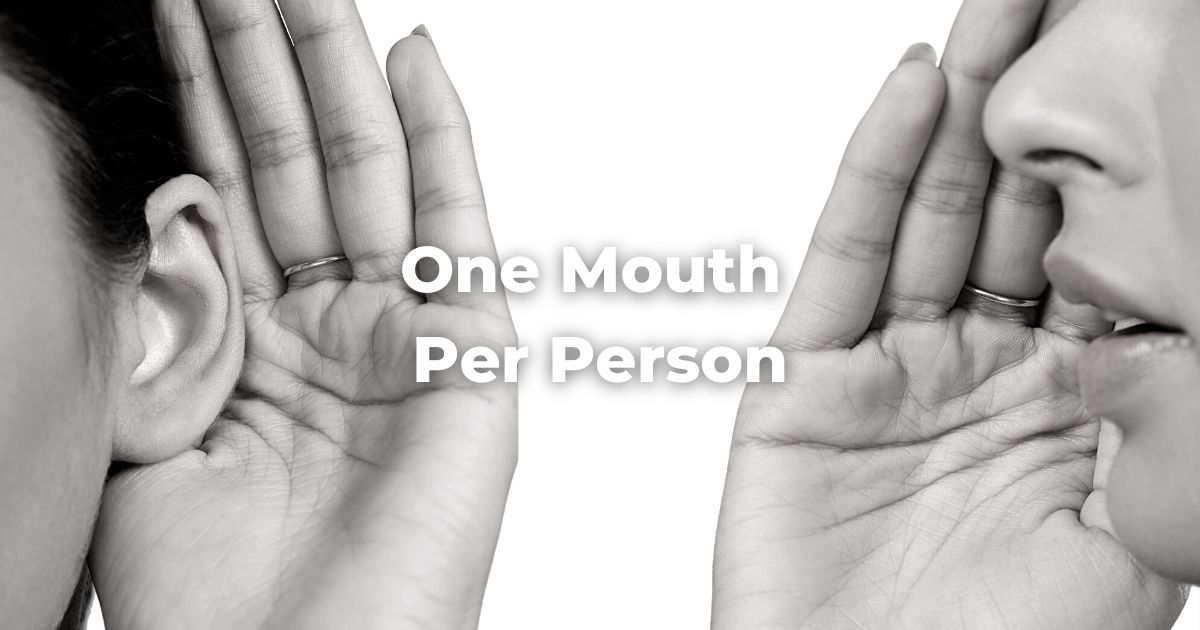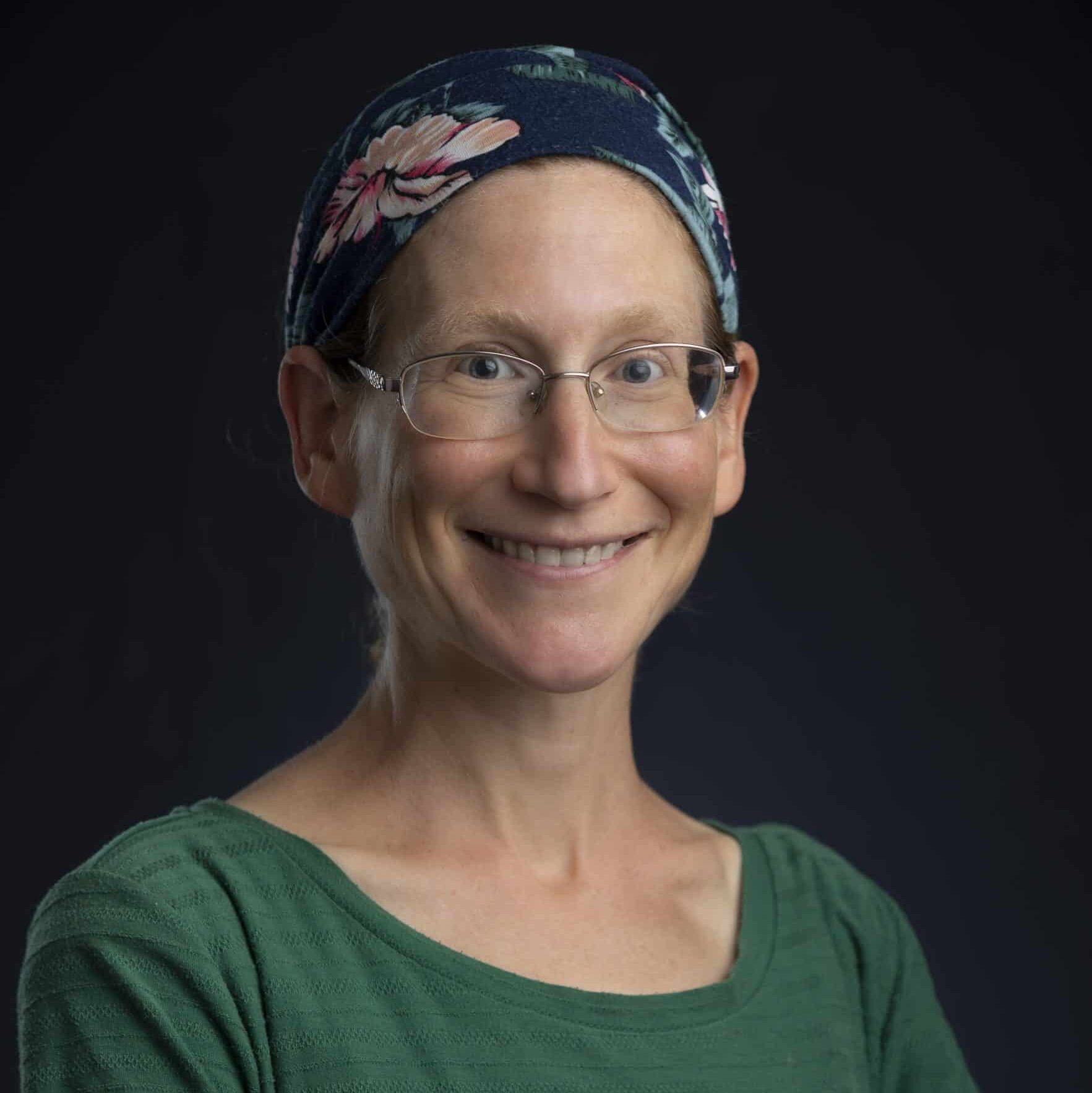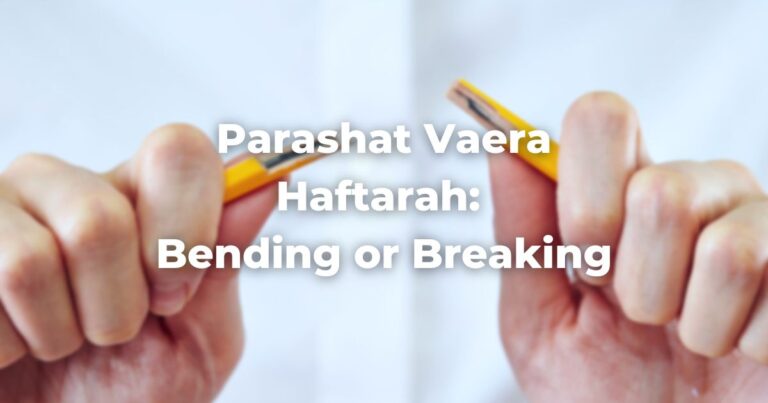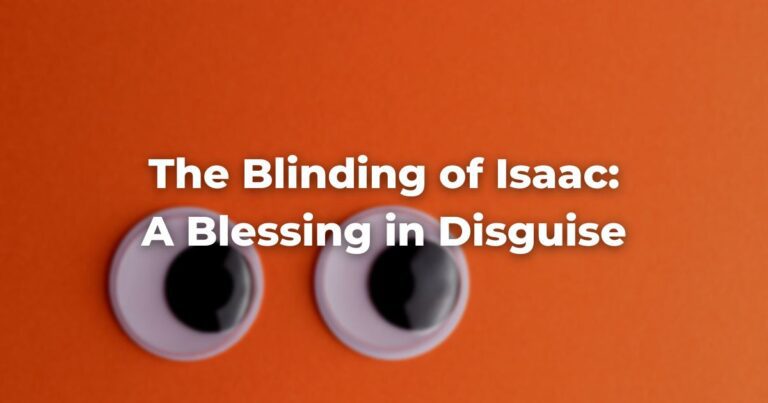Often when I’m in synagogue, I hand my toddler his favorite book, One Hundred First Words, in the hope that he will amuse himself by looking at the pictures while I’m absorbed in prayer.
But usually, it doesn’t work that way. Instead, he points excitedly at each of the images—tractor, train, dog, banana—and looks at me eagerly, waiting for me to identify each object. In between every line of the prayerbook, I find myself inserting a quick “yes, that’s a bathtub,” or “yes, that’s a bottle,” frustrated by my inability to get through a single blessing uninterrupted.
Two mouths or one?
In such moments, I’m reminded of a Talmudic story about Rabbi Shimon bar Yochai, who declared, “If I had been on Mount Sinai when the TorahRefers to the first five books of the Hebrew Bible, the Tanakh, also called the Five Books of Moses, Pentateuch or the Hebrew equivalent, Humash. This is also called the Written Torah. The term may also refer to teachings that expound on Jewish tradition. Read more was given to Israel, I would have asked God for two mouths, one to speak words of Torah, and one to use for all other needs.”
But then on second thought, he reconsidered and said, “The world can barely continue to exist on account of the slander that comes out of one mouth. How much worse would it be if everyone had two mouths!” (Y. Berachot 1:2 [3b]).
Sometimes I wish I had two mouths, one for praying and one for acknowledging my eager toddler.
Then I am reminded of all the words I speak and then regret, and like Rabbi Shimon bar Yochai, I reconsider and resolve that one mouth is enough.
The Talmudic sages connect the dangers of speaking inappropriately to our parashah, which details the laws concerning the metzora, the person stricken with a skin disease commonly translated as leprosy.
Meaning of metzora
The sages (Erchin 15b) understood metzora as an acronym for “motzi shem ra,” one who “draws out a bad name,” that is, someone who tarnishes another person’s reputation—a sin referred to by the rabbis as lashon hara. They declare that anyone who speaks ill of another person will be stricken with leprous marks, as if to suggest that the distress caused to another person by slander is tantamount to the distress of a scaly skin affliction.
The sages, Rabbi Shimon bar Yochai among them, developed an extensive theology conflating the leper and the slanderer, offering us insight into the power and peril of the words we speak.
The Torah associates leprosy with death; both the leper and the individual who come into contact with a dead body are declared impure and cast out of the camp.
In the rabbinic imagination, this association with death applies to the slanderer as well.
The rabbis quote a verse from Proverbs 18:21, “Death and life are in the hands of the tongue,” explaining that just as a hand can kill, so too a tongue can kill. However, they add that unlike a hand, which can kill only those within arm’s distance, a tongue is like an arrow that is fired from a bow and can kill from a great distance, as per a verse from Jeremiah 9:7, “Their tongue is a sharpened arrow.”
Evil speech can harm even those who are not in the immediate vicinity because gossip travels quickly. Likewise, evil speech also carries with it an element of death’s irreversibility, because words, once spoken, can never be fully retracted.
The slander and the slanderer
The TalmudReferring to one of two collections, the Jerusalem and Babylonian Talmuds, edited in the 6th century, that contains hundreds of years of commentary, discussion, and exploration of the ideas in the Mishnah. One could describe it as Mishnah + Gemara = Talmud Read more teaches that if a person speaks ill of another, God declares, “He [the slanderer] and I cannot dwell together in this world.”
God cannot bear to live in the world with a person who speaks inappropriately, and thus such a person must be cast out. This is a fitting response given that slander so often leads to the ostracism of the person slandered.
The leper, too, is cast out of the camp and forced to dwell apart from the rest of the nation on the outskirts of society. He may return only after the priest examines the leper, cleanses him, and declares him pure. At that point he must bring two birds, one of which is set free and one of which is slaughtered, its blood mixed with cedar wood and hyssop and sprinkled over the leper.
The rabbis explain that since this individual committed a sin by chattering too much, his purification involves bringing two birds who chirp and chatter incessantly.
The rabbis caution that evil speech is so dangerous that one should not even speak well of another person in the presence of others, because in speaking about his goodness, one might come to speak of that person in a derogatory manner.
They illustrate this point by means of a story about Rav Dimi, who once fell ill (Erchin 16a). His brother Rav Safra went to visit him, and when he arrived, Rav Dimi boasted to all those present, “I have merit coming to me, for I have fulfilled everything the sages said!”
Rav Safra asked him, “But have you fulfilled the command not even to speak of the goodness of a person in the presence of others, because doing so may lead others to speak of him derogatorily?”
Rav Dimi had to admit that no, he did not fulfill this dictum.
In this story, which presumably was meant to be not just ironic but also humorous, Rav Dimi speaks well of himself, which leads to him having to admit to his own failings. Even when we offer words of praise about someone, we run the risk of speaking ill of them because we open them up to critique. Better not to talk about other people at all.
Evil speech or silence?
And yet it is clear that according to the rabbinic understanding, the antidote to evil speech is not silence.
The rabbis tell the story of Rabbi Yannai, who once met a peddler hawking an elixir of life (Leviticus Rabbah 16:2). Rabbi Yannai was eager for a sample. But the peddler was quick to assure him that he didn’t need his wares, because he was already in possession of them.
He showed Rabbi Yannai a verse from Psalms 34:12-14: “Who is the man who desires life?… Keep your tongue from evil and your lips from lies. Turn from evil and do good; seek peace and pursue it.”
The term used in this story for peddler, rochel, comes from the same root as the word used in the Torah for slander, rechilut, and indeed, as Rav Nachman’s wife Yalta explicitly declares, “Gossip comes from peddlers” (Berakhot 51b).
But in this story it is the peddler who reminds Rabbi Yannai that the key to living a long life is to avoid speaking ill and to perform good deeds. If Rabbi Yannai heeds the message of the verse from Psalms—and presumably other words of Torah as well—he will not speak ill of others and will thus merit long life.
“Oh how I love your Torah,” declares the Psalmist, “It is what I speak all day long” (Psalms 119:97).
When confronted with pauses in a conversation or awkward silences, we should fill the quiet not with gossip, but with words of Torah.
The Talmud (Ketubot 77b) tells a story about Rabbi Yehoshua ben Levi, who was the only sage who was unafraid of drawing close to the lepers living on the outskirts of his town. All the other sages would keep their distance, but Rabbi Yehoshua ben Levi would sit among them and study Torah, insisting that “If Torah graces those who study it, will it not also protect me?”
He was convinced that studying Torah would safeguard him from contagion, just as speaking words of Torah can safeguard us against speaking ill of others. Evil speech, like leprosy, is a matter of life and death. We are granted only one life to live, and only one mouth with which to speak.
See more: Parashat Metzora
Originally posted as part of the Conservative Yeshiva at the Fuchsberg Jerusalem Center’s Torah Sparks. Support Torah learning from the Fuchsberg Jerusalem Center/Conservative Yeshiva for leaders and seekers around the world here
Authors
-

Ilana Kurshan teaches Talmud at the CY. She is the author of If All the Seas Were Ink (St. Martin’s Press, 2017) and Why is This Night Different From All Other Nights (Schocken, 2005). She has a degree in History of Science from Harvard and in English literature from Cambridge, and has worked in literary publishing both in New York and in Jerusalem – as a translator, a foreign rights agent, and as the Books Editor of Lilith Magazine. Since October 2020, Ilana has been a regular contributor to Torah Sparks, FJC’s weekly parashat hashavuah blog.
View all posts -



The Fuchsberg Jerusalem Center (FJC) is a home in the heart of Jerusalem where leaders and seekers can find an authentic place in Jewish tradition to call their own. FJC offers opportunities to study, pray and explore within an egalitarian and inclusive setting, creating multiple pathways for finding personal and communal meaning.
View all posts






